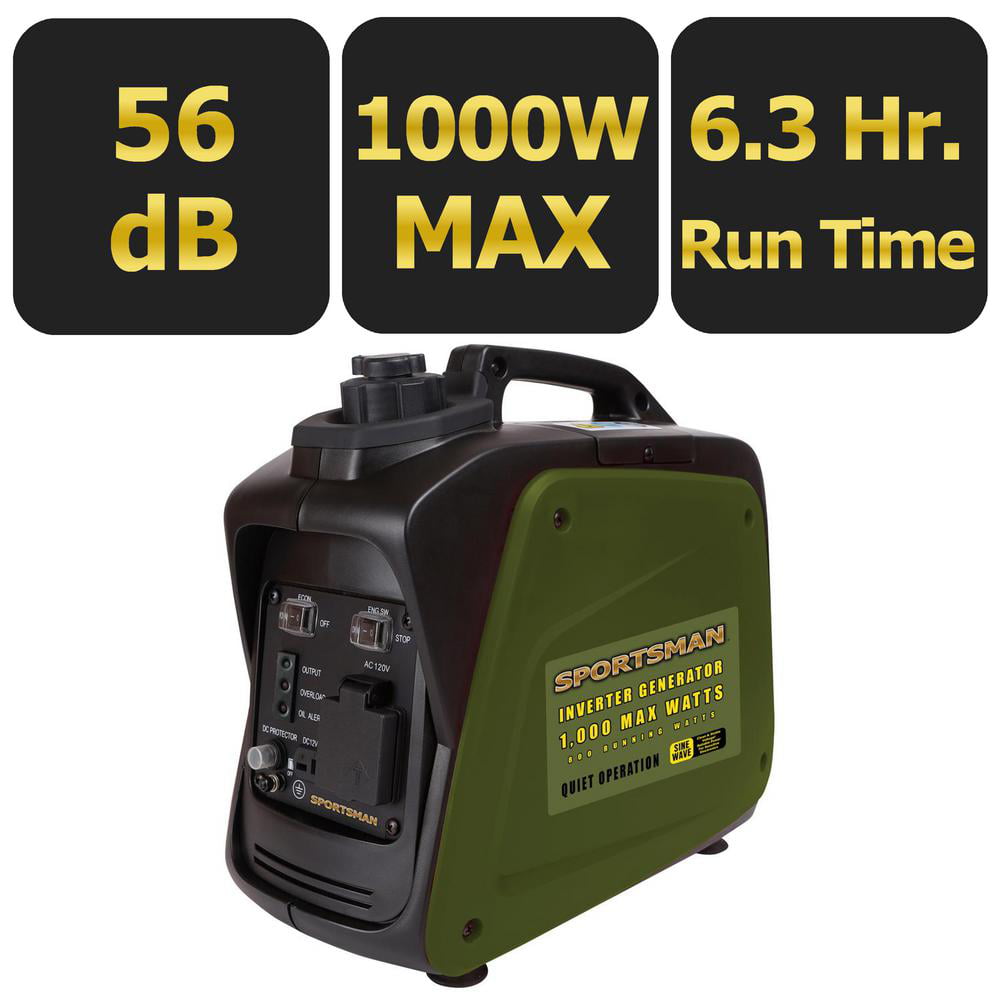What is even more amazing to me is the following 1000W inverter generator under the brand Sportsman that you can get for $149.
For that price you not only get inverter technology, but also a 4-cycle engine, not a 2-cycle. How the heck can anyone build and sell one for such a low retail price? And it weighs 20 lbs, a lot less than the common 2-cycle generator that sells for $99.
And the thing is CARB-approved!
....
Most buyers are happy with it. I am so intrigued, I looked a bit more, and found a Youtube review that shows how it's built.
That's an interesting little unit, and the
price is right. 800W continuous would power my furnace blower (I'm not sure if it would start it--it's an electronically controlled unit, so maybe),
or freezer+lights+room fan. Not bad at all, and pretty handy.
Here's a video Here's a video of a guy using this little generator to run a
small AC unit and to use extra capacity from the unit to provide 4 amps at 12VDC to charge a battery.
The claimed continuous HP (1.3 HP) is believable (based on 4-stroke aluminum air-cooled engines: Lycoming to VW to Honda to Briggs&Stratton, they all require 31-36 ccs per continuous HP due to engine head heat limits. This engine is 31cc/HP).
1.3HP = 969 watts (at 100% conversion efficiency), so the claimed 1000 peak watt output could only come by trading some engine kinetic energy for short-term output (that is, getting more output through a short-term drop in RPM).
The claimed fuel efficiency of the unit is terrible
compared to larger air-cooled engines. The mfgr claims the .55 gal tank lasts 6.3 hours at 50% output. If we assume this equates to an engine output of 0.65 HP, that gives a BSFC of 0.8 lbs/hr/HP. In larger air-cooled 4-strokes, we typically see about .45 lbs/hr/HP.
BUT--high specific fuel consumption is unavoidable with tiny engines. It's still a
lot better than the 700/900 watt Harbor Freight 2-stroke which, at 50% power, burns about
5 times as much fuel (2.5 lbs/hr/HP).
I wonder how efficient it is to run my 6cyl car engine to get 8 amps from the alternator? Despite all the sophisticated FI and the tight tolerances that water cooling allows in the car engine, I'd bet the little cheapy 800/1000w 4-stroke genset makes power more efficiently due to less internal friction compared to the much bigger car engine.
Good find, thanks!

